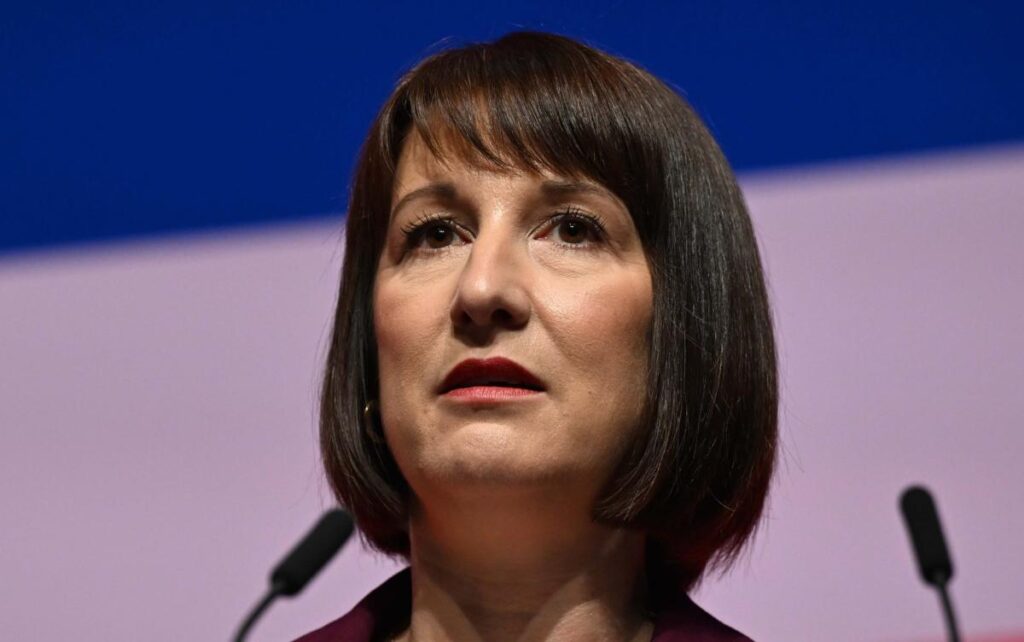Rachel Reeves has been warned that a borrowing binge to fund her investment drive risks triggering a “buyers’ strike” in the gilt market.
Economists said there was already “material concern” that the Chancellor was preparing to embark on a debt-fuelled increase in spending, even though she has been clear that she will only borrow to invest in growth-enhancing infrastructure.
The Chancellor has vowed to “invest, invest, invest” in her maiden Budget on Oct 30.
But Citi, which is one of a select number of financial institutions authorised to buy and sell government gilts directly from the Treasury, said overseas investors in particular were nervous about her spending plans.
Benjamin Nabarro, chief UK economist at Citi, said the Liz Truss mini-Budget in 2022 was still casting a shadow over debt markets.
He said: “International investors in particular, are not really willing to give the gilt market the benefit of the doubt. So once that uncertainty has entered the market, we have seen not a full-blown, but a tacit sort of buyers’ strike begin to emerge in the market. And that is a material problem.”
While Mr Nabarro made it clear that buyers today still had confidence in UK debt because they did not expect a “large and front-loaded” increase in investment spending, he added that financiers were monitoring discussions about potential changes to the UK’s debt rule that could see Labour ramp up borrowing.
Ms Reeves is understood to be considering rewriting Britain’s debt rules in a move that could unlock an extra £50bn of spending in her maiden Budget.
Mr Nabarro said: “[I] obviously work in an institution that is very closely involved in the gilt market. Our assessment – or the feedback we get – is there is material concern out there.
“I don’t think there’s going to be a buyers’ strike tomorrow by any means [but] the UK in general just has to be more careful.”
Britain’s public finances are already under huge pressure from mounting debt interest payments. The Treasury is set to pay out £89bn in debt interest this year, according to the Office for Budget Responsibility’s forecasts at the March Budget, rising to almost £110bn in 2028-29.
While adding to the debt pile risks increasing that burden, the Chancellor believes that investment in Britain’s ailing infrastructure is vital to boosting the country’s long-term growth potential.
While rewriting the debt rules would allow her to spend more on investment, George Lagarias, chief economist at Forvis Mazars, warned the Chancellor could find herself at the “mercy of the bond markets” if she implements her plans too quickly.
Sanjay Raja, chief UK economist at Deutsche Bank, called for prudence “given bond volatility, and uncertainty rising among investors”.
He said: “It would make more sense to slowly ramp up unfunded investment with productive projects geared towards boosting productivity and potential growth.
“And the Government should communicate a clear and transparent plan rather than doing it in one fell swoop on Oct 30.
“Investment is a good thing. It just needs to be transparent, tractable and accountable within a responsible fiscal framework.”
Ms Reeves has sought to allay investor concerns about a debt-fuelled investment drive.
“It’s about making prudent, sensible investments in the long term and we need guardrails around that,” she told the Financial Times.
However, Mr Nabarro said clear risks remained. He said a buyers’ strike in the gilt market was “a conceivable risk” if “the rules are changed and there is a material risk [that] Rachel Reeves could invest something like £50bn next year.”
Mr Nabarro said it was vital that the Chancellor “put some guardrails” around any extra spending room she had in the Budget and make it “absolutely clear” that the money would be spent slowly and “will be very carefully policed.”
Concerns about the state of public finances, as well as shifting market expectations for interest rates, have led to a rise in UK borrowing costs in recent weeks.
Government borrowing costs are already almost double that of Germany’s. The UK now pays 4.2pc to borrow for a decade, up from the Covid-era low of less than 0.1pc, and the typical rate of between 1pc and 2pc in the years before the pandemic.
The gap between UK and German borrowing costs in financial markets this week rose to its highest in more than a year.
Unlike parts of the eurozone, Mr Nabarro said the UK had consistently lived beyond its means by running both a budget and current account deficit, which left it reliant on foreign investors to finance itself.
Ms Reeves’s plans to ramp up spending came as the “fear gauge” on US bond markets rose at its sharpest pace in four years this week.
The MOVE index, which tracks volatility in the US Treasury bond market, spiked by 24pc on Monday, which was its sharpest daily gain since October 2020.
Broaden your horizons with award-winning British journalism. Try The Telegraph free for 3 months with unlimited access to our award-winning website, exclusive app, money-saving offers and more.
Read the full article here

